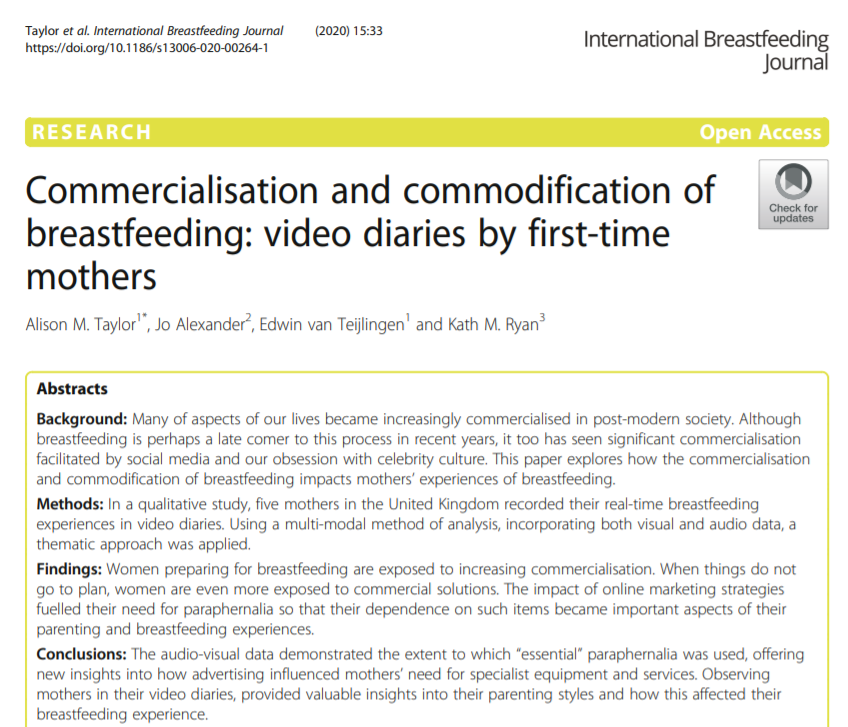 Congratulations to Dr. Alison Taylor in the Centre for Midwifery, Maternal & Perinatal Health (CMMPH) the publication two days ago of her paper ‘Commercialisation and commodification of breastfeeding: video diaries by first-time mothers’ in the International Breastfeeding Journal [1]. Alison is Deputy Head of Department Midwifery and Health Sciences as well as Infant Feeding Lead. This paper is the third paper from her excellent PhD study It’s a relief to talk…”: Mothers’ experiences of breastfeeding recorded in video diaries. The first and second paper we published in 2019 also with Alison supervisors Professors Jo Alexander, Kath Ryan and Edwin van Teijlingen [2-3]. This third paper focuses on how many of aspects of our lives became increasingly commercialised. Although breastfeeding is perhaps a late comer to this process in recent years, it too has seen significant commercialisation facilitated by social media and our obsession with celebrity culture. This paper explores how the commercialisation and commodification of breastfeeding impacts mothers’ experiences of breastfeeding.
Congratulations to Dr. Alison Taylor in the Centre for Midwifery, Maternal & Perinatal Health (CMMPH) the publication two days ago of her paper ‘Commercialisation and commodification of breastfeeding: video diaries by first-time mothers’ in the International Breastfeeding Journal [1]. Alison is Deputy Head of Department Midwifery and Health Sciences as well as Infant Feeding Lead. This paper is the third paper from her excellent PhD study It’s a relief to talk…”: Mothers’ experiences of breastfeeding recorded in video diaries. The first and second paper we published in 2019 also with Alison supervisors Professors Jo Alexander, Kath Ryan and Edwin van Teijlingen [2-3]. This third paper focuses on how many of aspects of our lives became increasingly commercialised. Although breastfeeding is perhaps a late comer to this process in recent years, it too has seen significant commercialisation facilitated by social media and our obsession with celebrity culture. This paper explores how the commercialisation and commodification of breastfeeding impacts mothers’ experiences of breastfeeding.
This qualitative research is based on five new mothers in the United Kingdom recorded their real-time breastfeeding experiences in video diaries. The purposive sample of five participants recorded 294 video entries lasting 43 h and 51 min, thus providing abundance of rich data. using a multi-modal method of analysis, incorporating both visual and audio data, a thematic approach was applied. The study found that women preparing for breastfeeding are exposed to increasing commercialisation. When things do not go to plan, women are even more exposed to commercial solutions. Under the influence of online marketing strategies the need for paraphernalia grew. Women’s dependence on such items became important aspects of their parenting and breastfeeding experiences. Alison and her co-authors conclude that the audio-visual data demonstrated the extent to which “essential” paraphernalia was used. The paper offers new insights into how advertising influenced mothers’ need for specialist equipment and services. Observing mothers in their video diaries, provided valuable insights into their parenting styles and how this affected their breastfeeding experience.
- Taylor, A.M., van Teijlingen, E., Alexander, J., Ryan, K. (2020) Commercialisation and commodification of breastfeeding: video diaries by first-time mothers, International Breastfeeding Journal 15:33 https://doi.org/10.1186/s13006-020-00264-1
- Taylor A, van Teijlingen, E.,Ryan K, Alexander J (2019) ‘Scrutinised, judged & sabotaged’: A qualitative video diary study of first-time breastfeeding mothers, Midwifery 75: 16-23.
- Taylor, A.M., van Teijlingen, E., Alexander, J., Ryan, K. (2019) The therapeutic role of video diaries: A qualitative study involving breastfeeding mothers, Women & Birth 32(3):276-83. https://www.sciencedirect.com/science/article/pii/S1871519218300064
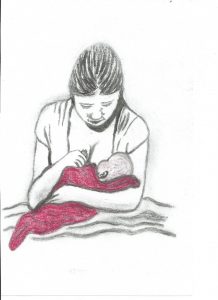
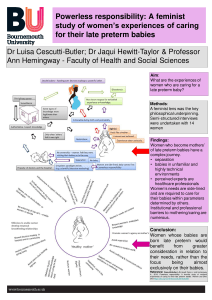

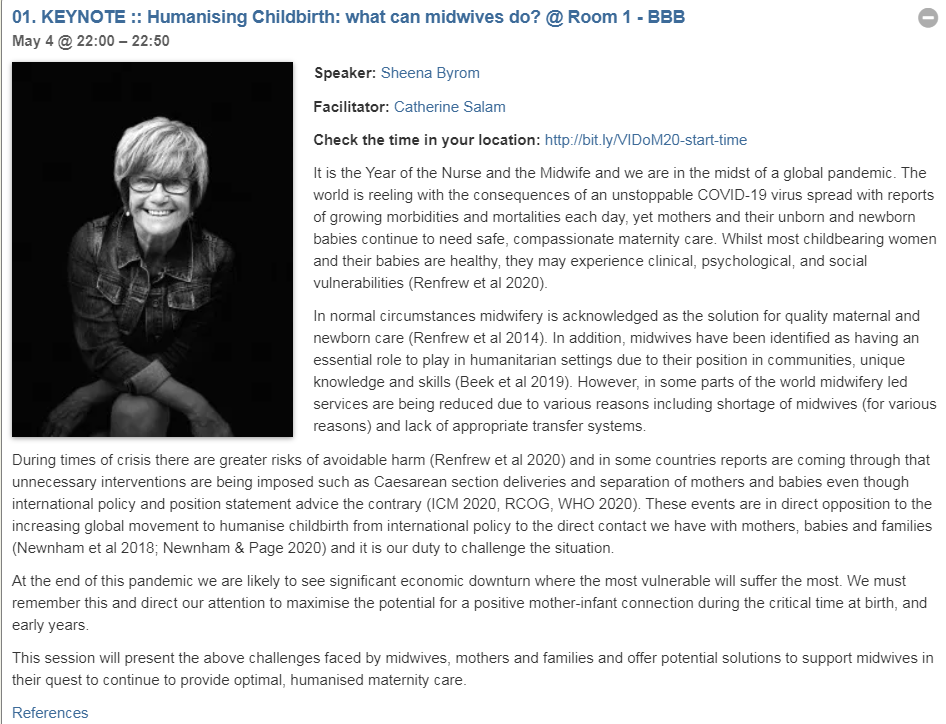
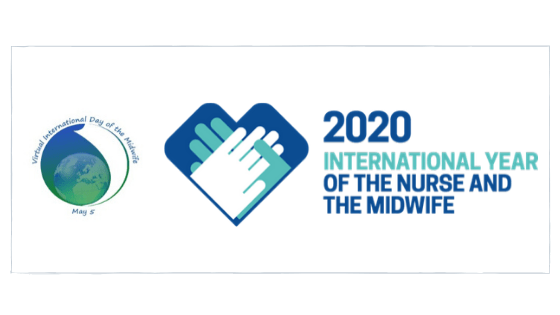

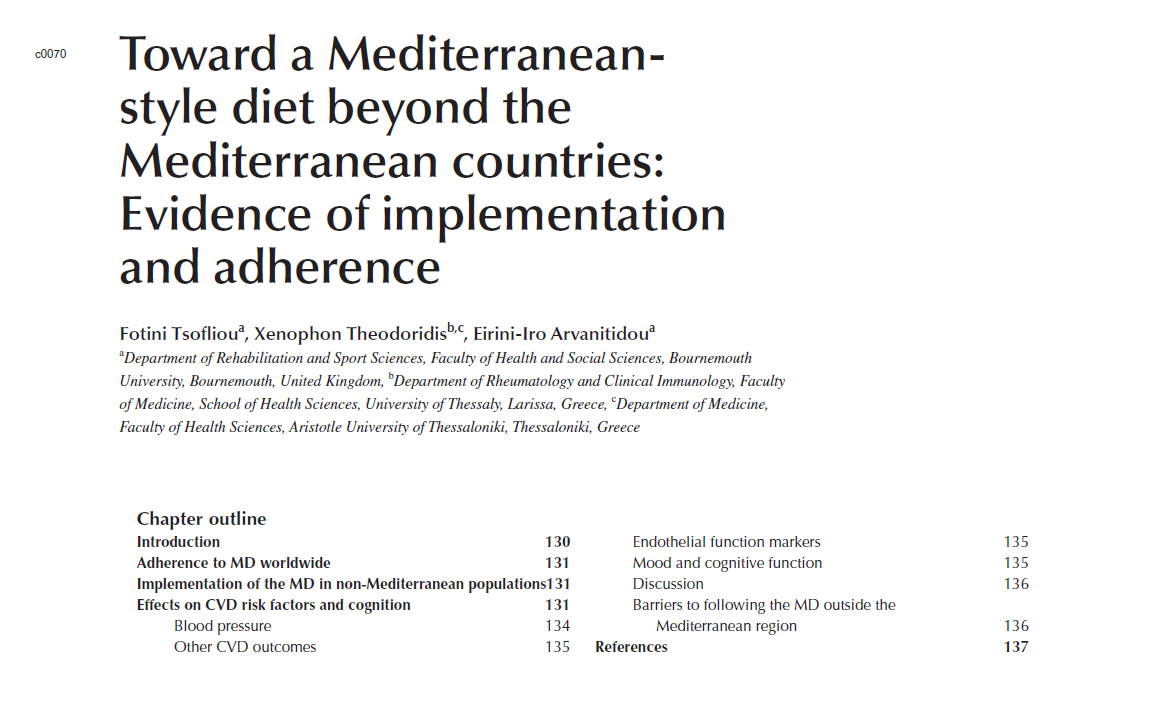
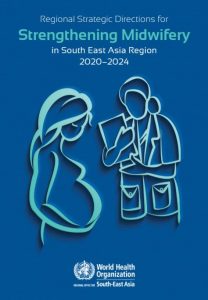
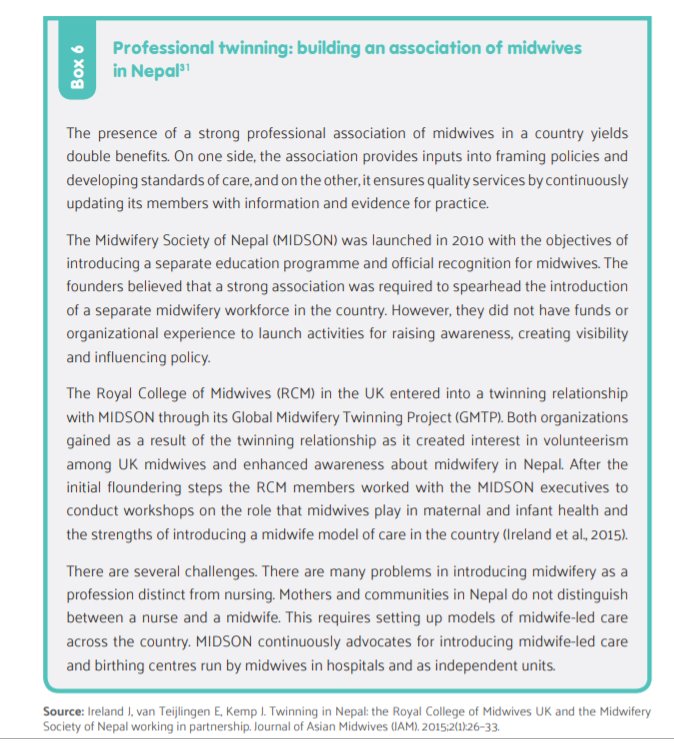

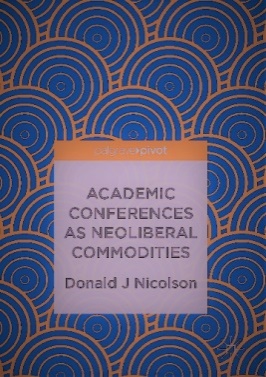



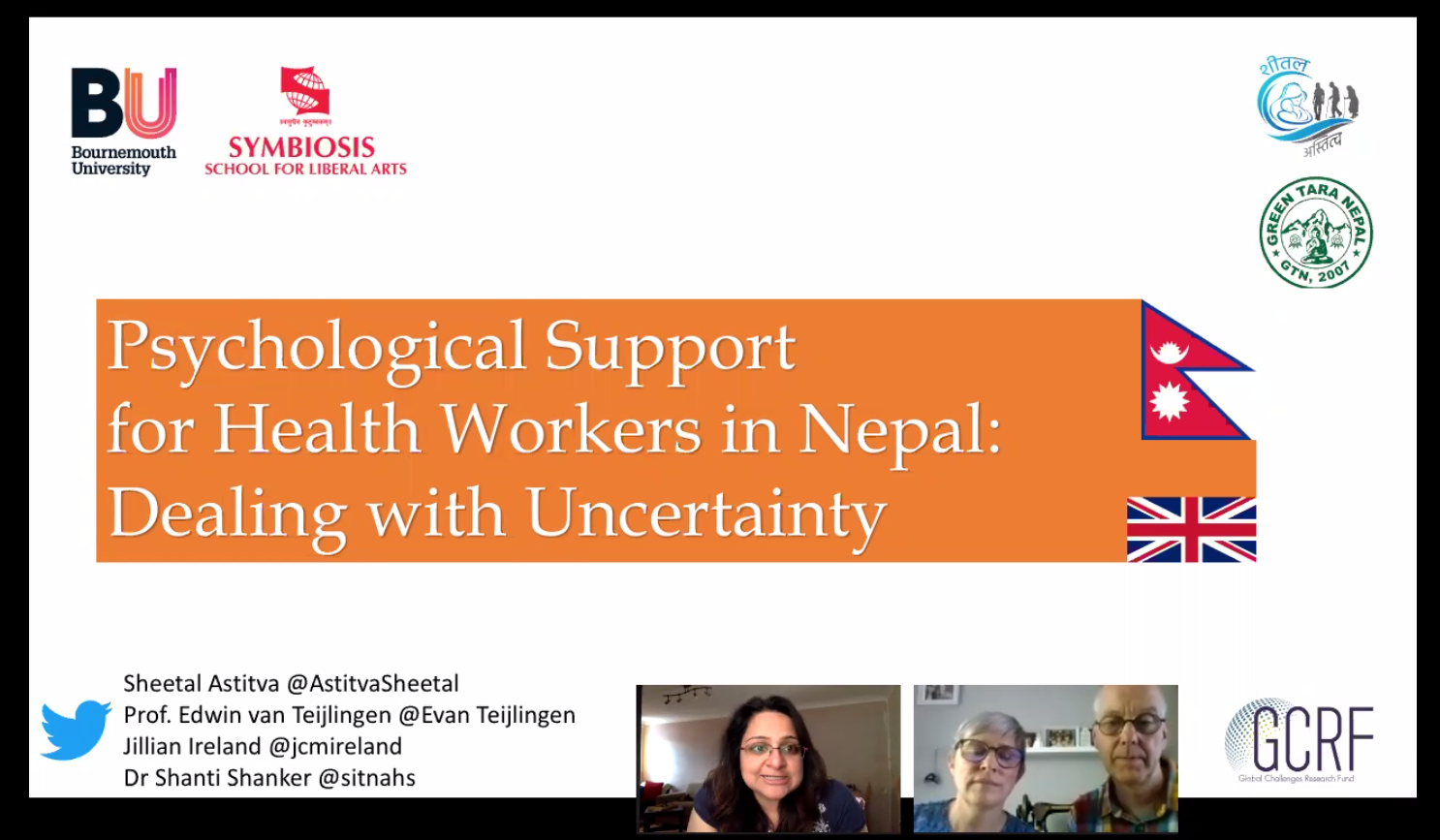
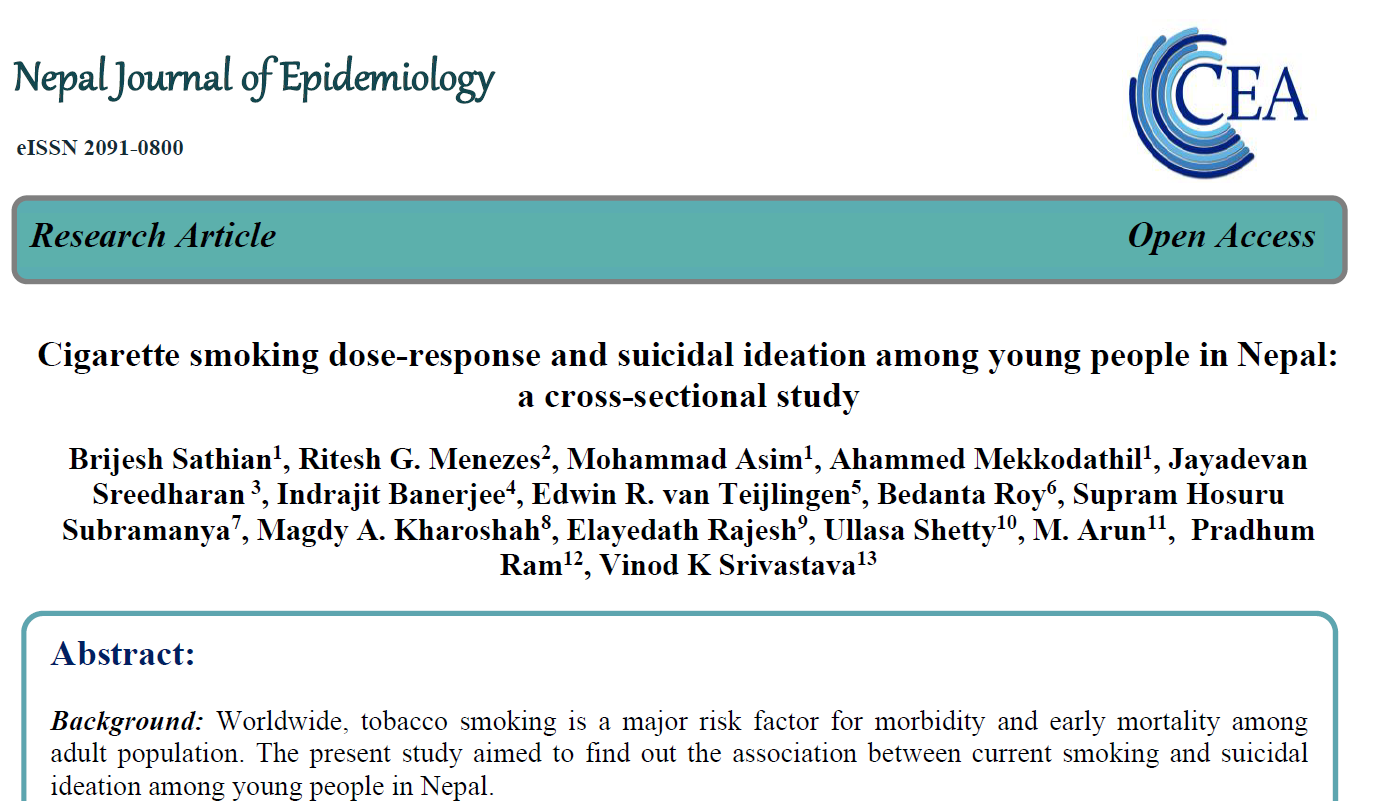
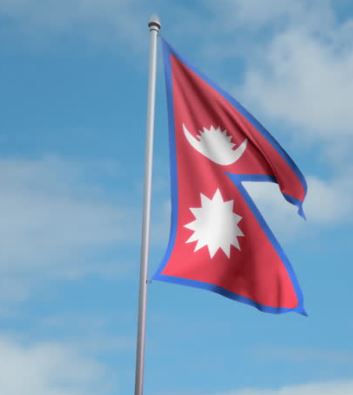

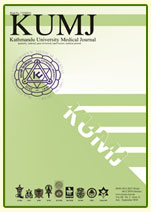

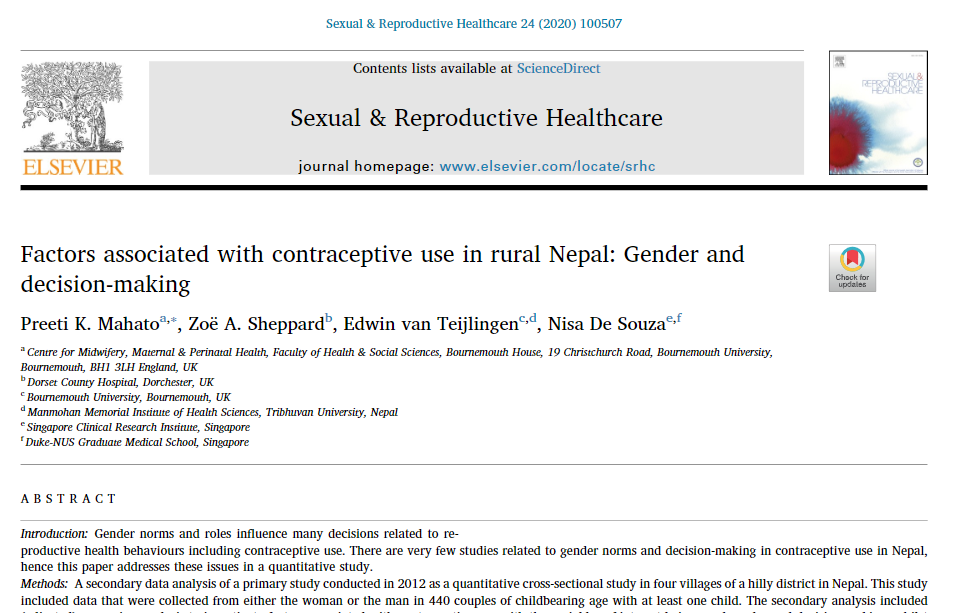




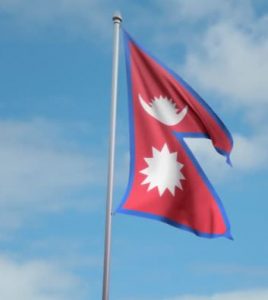





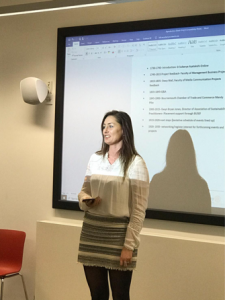
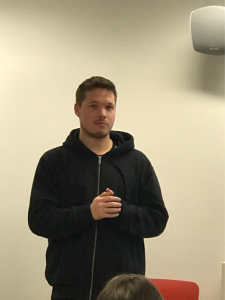
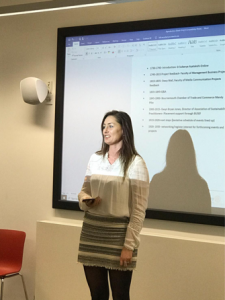
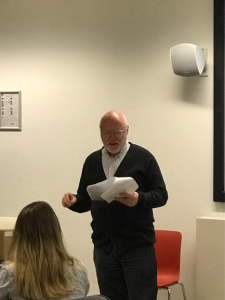
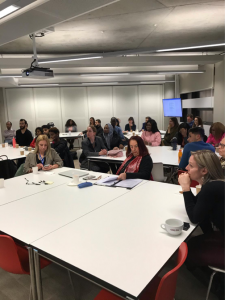
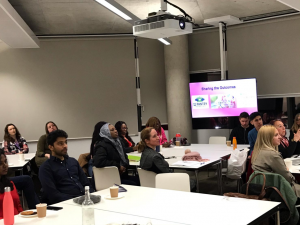
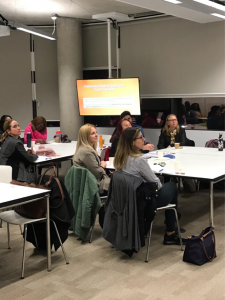



























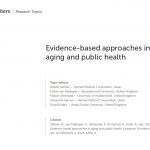 New eBook published in April
New eBook published in April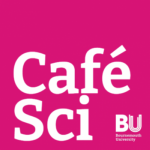 Café Scientifique Tuesday 4 June 2024 – How can we become more resilient in the face of multiple risks and hazards?
Café Scientifique Tuesday 4 June 2024 – How can we become more resilient in the face of multiple risks and hazards? MSCA Postdoctoral Fellowships 2024
MSCA Postdoctoral Fellowships 2024 Horizon Europe News – December 2023
Horizon Europe News – December 2023